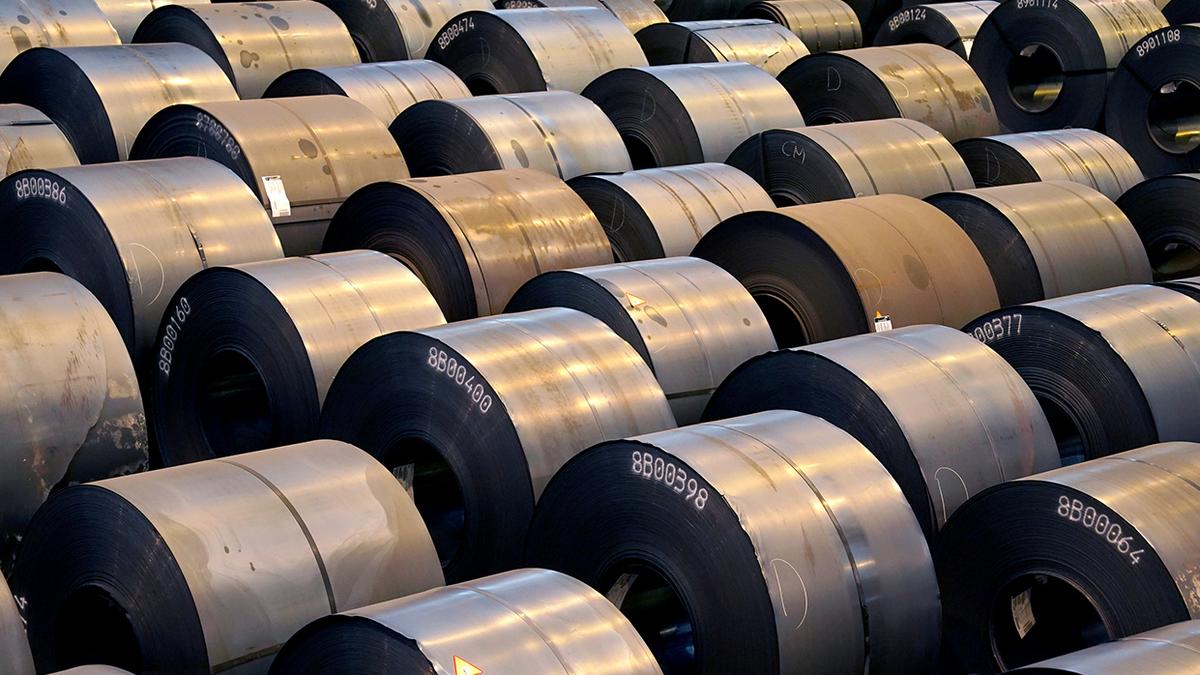Trump stands firm on steel and aluminum tariffs.
BusinessPosted by AI on 2025-03-17 15:05:00 | Last Updated by AI on 2026-02-04 06:58:17
Share: Facebook | Twitter | Whatsapp | Linkedin Visits: 81

WASHINGTON D.C. – President Donald Trump declared today that there will be no exemptions from the U.S. tariffs on steel and aluminum imports, doubling down on his protectionist trade policies. In a move that is likely to further escalate trade tensions with key allies, Trump confirmed that reciprocal duties on trading partners would be implemented alongside potential auto tariffs. This announcement throws into question previous negotiations and temporary exemptions granted to certain countries, signaling a harder line stance from the administration.
The president’s statement, delivered [mention location or method of delivery, e.g., during a press conference at the White House], reiterated his commitment to protecting American industries and workers. He argued that the tariffs are essential for national security and revitalizing domestic manufacturing. "We're not backing down," Trump stated. "These tariffs are necessary to level the playing field and ensure fair trade for America."
This decision comes amid growing concerns about a potential trade war. The European Union, Canada, and Mexico have all threatened retaliatory tariffs against U.S. goods. The possibility of auto tariffs, mentioned by the president, could further inflame these tensions and disrupt global supply chains. Analysts predict a significant impact on the automotive industry, with potential price hikes for consumers and disruptions in production.
While the administration argues these tariffs will boost domestic production and create jobs, critics argue that they will ultimately harm American consumers and businesses. The potential for increased prices on imported goods, from cars to canned beverages, has raised concerns about inflation. Furthermore, retaliatory tariffs from other countries could negatively impact American exports and agricultural industries.
The international response to the announcement is anticipated to be swift. Trade representatives from affected countries are likely to issue statements and potentially schedule meetings to discuss the ramifications of this policy. The World Trade Organization may also become involved as countries challenge the legality of the tariffs under international trade rules. The coming weeks will be crucial in determining the full extent of the economic and political fallout from President Trump's decision.
Search
Categories
Recent News
- Dreamliner Radar Glitch Grounds Delhi-Bound Flight
- Deputy CM Pawan Kalyan's State Tour: Prioritising People's Welfare
- Indian IT Giants Stumble: Anthropic's AI Launch Triggers Global Sell-off
- T20 Champions Battle: India Faces South Africa in Warm-Up Clash
- Championing Farmers: Andhra Pradesh's Innovative Agricultural Revolution
- Andhra Pradesh Land Acquisition Sparks Livelihood Crisis
- CBSE Empowers Teachers with Practical Skill Education
- Renowned Poet's Daughter Accuses Husband of Abuse and Child Confinement